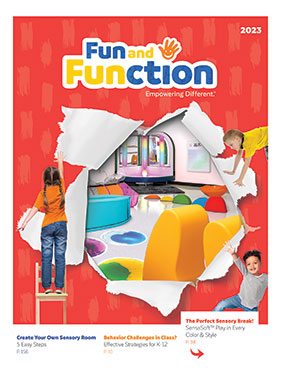Beep. Zap. Click. Ding. Swoosh!
These are the sounds our children are exposed to while playing video games. Video games and kids seem to go hand in hand these days and the truth is that technology whether it is handheld, laptops or cell phones are just as much a part of our adult lives as well.
Whereas my generation (baby boomers) spent our free time wandering through the woods, riding our bikes down dirt paths and climbing hills, kids today spend their spare time on Facebook, youtube and playing video games. It's controversial and even parents who stand on one side of the argument as to whether kids should have continuous access to the Internet; it's simply inevitable that they will. We all find our way there.
For children with autism video game playing presents a similar yet pronounced effect. The advantages and disadvantages seem to be even more profound; and, even if you tend to hang in one arena, you will find yourself migrating toward the other before too long.
Advantages to video game playing:
Concentration: Playing video games requires focus and concentration. Keeping your eyes focused and hand engaged for long periods of time can build up attention spans to electronic devices and moving objects.
Hand/Eye Coordination: Not only do these games require fine motor control, but they also encourage hand/eye coordination and visual tracking skills as well.
Age-Appropriate Activity: You can select games based on age, grade or skill level, so children who otherwise fall out of line when it comes to peer interaction, now have a common bond with their classmates.
Confidence: Collect points and score! Video game playing can build up confidence skills in no time at all.
Education: Meanwhile, you can also enhance math, language, science and other academic skills too.
Digital Age: We are part of a digital age. Video games are just one example of where science and technology are influencing our lives. It is here to stay and games are just one way of interacting.
Disadvantages to video game playing:
Addiction: Ever heard of kiddy cocaine? It's not what you think. It's video game addiction. A few minutes turns into 20 and then an hour later your child hasn't moved from their seat (or parent from Facebook).
Lethargy: Excessive time spent on video games can lead to lethargy, apathy and disinterest in other activities. It can also lead to obesity, lack of large motor skills poor coordination and detrimental changes in vital signs.
Poor communication: Whereas video games can enhance communication skills between the user and technology, it can also decrease the time spent communicating with family and friends.
So, here are a few tips to reap the gains of using technology but to keep it in a good balance:
1) Set a time limit on computer use. Be consistent with this.
2) Allow your child to earn computer time for time spent doing chores, doing acts of kindness, performing well in school and for time exercising.
3) Balance out time spent reading, socializing, doing sports with computer time.
4) Use Skype and Google chat to enhance social and communication skills
5) Design a computer game with your children so your children can see the work, effort and technology used before a game is ever played.
6) Schedule a week off electronics. Notice changes in behavior whether it be positive or negative.
Whatever the activity, set up a comfortable place for kids to sit and relax with our collection of sensory seating.


















Comments